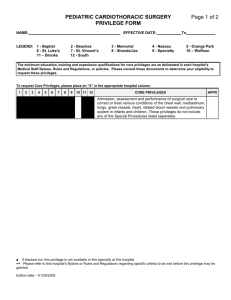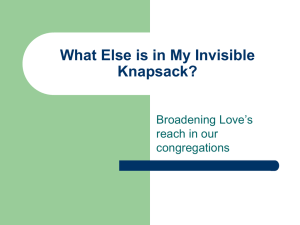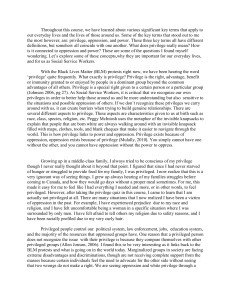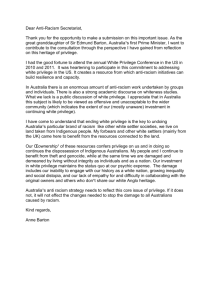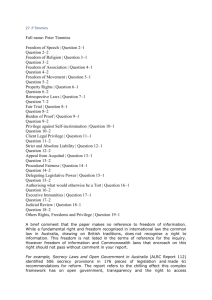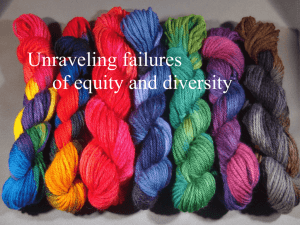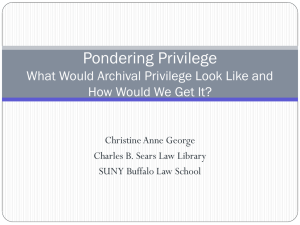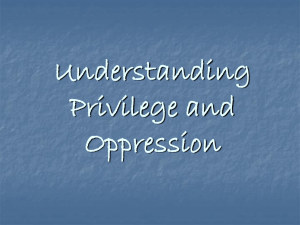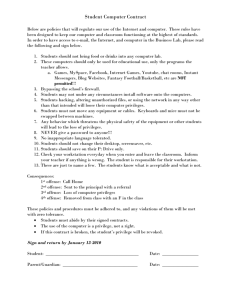ahead2012-7.2
advertisement
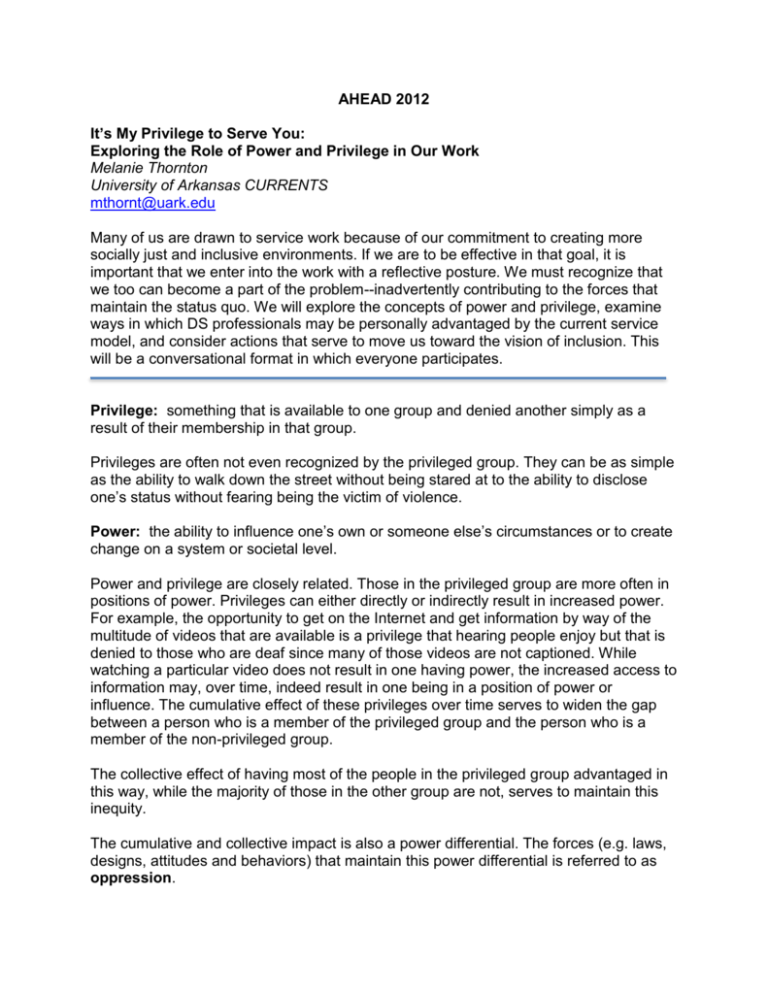
AHEAD 2012 It’s My Privilege to Serve You: Exploring the Role of Power and Privilege in Our Work Melanie Thornton University of Arkansas CURRENTS mthornt@uark.edu Many of us are drawn to service work because of our commitment to creating more socially just and inclusive environments. If we are to be effective in that goal, it is important that we enter into the work with a reflective posture. We must recognize that we too can become a part of the problem--inadvertently contributing to the forces that maintain the status quo. We will explore the concepts of power and privilege, examine ways in which DS professionals may be personally advantaged by the current service model, and consider actions that serve to move us toward the vision of inclusion. This will be a conversational format in which everyone participates. Privilege: something that is available to one group and denied another simply as a result of their membership in that group. Privileges are often not even recognized by the privileged group. They can be as simple as the ability to walk down the street without being stared at to the ability to disclose one’s status without fearing being the victim of violence. Power: the ability to influence one’s own or someone else’s circumstances or to create change on a system or societal level. Power and privilege are closely related. Those in the privileged group are more often in positions of power. Privileges can either directly or indirectly result in increased power. For example, the opportunity to get on the Internet and get information by way of the multitude of videos that are available is a privilege that hearing people enjoy but that is denied to those who are deaf since many of those videos are not captioned. While watching a particular video does not result in one having power, the increased access to information may, over time, indeed result in one being in a position of power or influence. The cumulative effect of these privileges over time serves to widen the gap between a person who is a member of the privileged group and the person who is a member of the non-privileged group. The collective effect of having most of the people in the privileged group advantaged in this way, while the majority of those in the other group are not, serves to maintain this inequity. The cumulative and collective impact is also a power differential. The forces (e.g. laws, designs, attitudes and behaviors) that maintain this power differential is referred to as oppression. Examples of non-disabled privilege: • When I am out in public people speak directly to me rather than speaking about me to the person who is with me. • When invited to go eat out, I don’t have to think about whether I can get in and around the restaurant. • Most people talk to me pretty freely without worry about saying the “wrong thing”. My non-disabled privilege statement: Examples of professional privilege: • As a professional working with people with disabilities, I benefit directly from the marginalization and oppression of people with disabilities. • I am often looked to for answers about access, design and disability. I am invited to meetings where I have the ears of administrators on our campus. My professional privilege statement:



